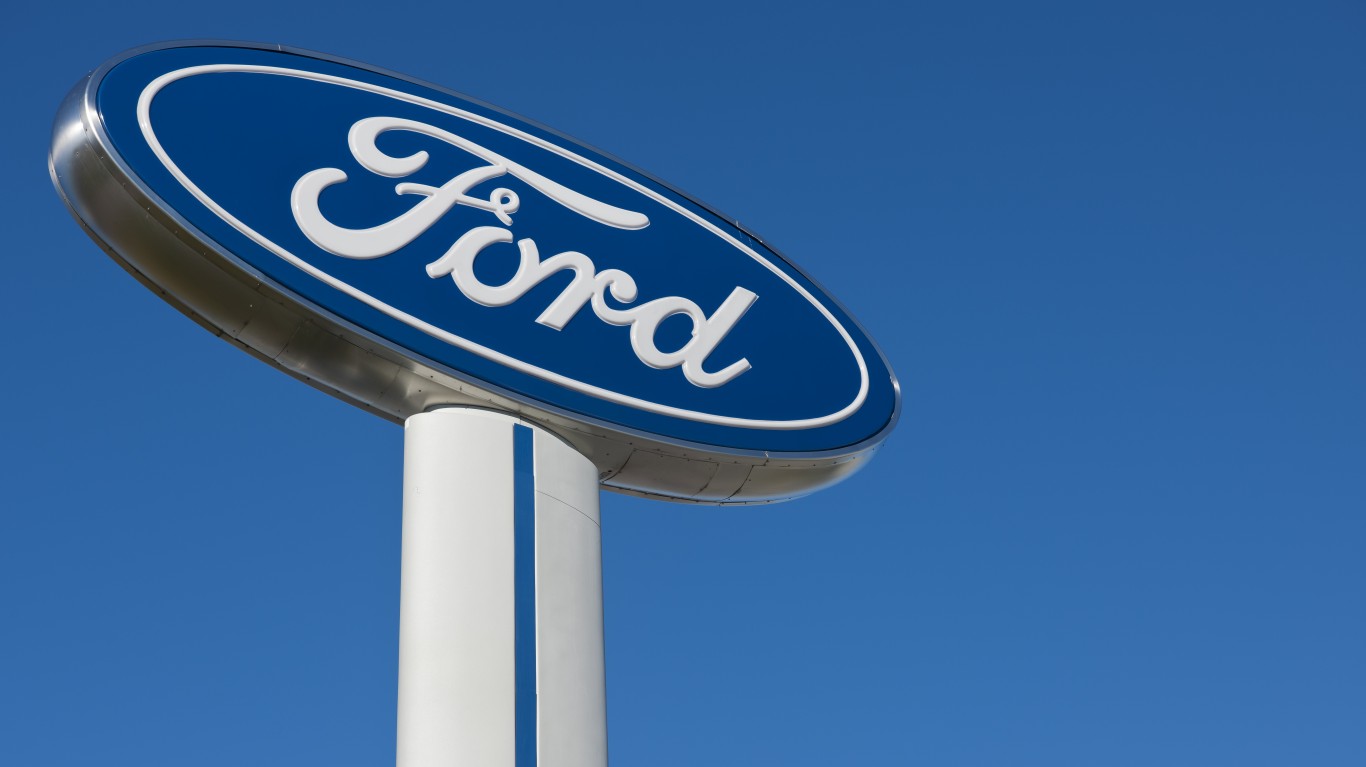 General Motors (NYSE: GM) lost $747 million, before interest and taxes, in Europe in 2011 and has lost $15.6 billion since 1999, the last year GM made money in the region. The big U.S. car company’s plans for the next two or three years will make it extremely difficult to avoid more losses. So, conservatively, GM’s European operations will be in the red for a total of 16 or 17 years by the time there is any chance for a profit. And that is if the firm’s plans for a turnaround are successful.
General Motors (NYSE: GM) lost $747 million, before interest and taxes, in Europe in 2011 and has lost $15.6 billion since 1999, the last year GM made money in the region. The big U.S. car company’s plans for the next two or three years will make it extremely difficult to avoid more losses. So, conservatively, GM’s European operations will be in the red for a total of 16 or 17 years by the time there is any chance for a profit. And that is if the firm’s plans for a turnaround are successful.
It would be hard to find a major American public company that would tolerate this sort of colossal loss in one of the world’s largest regions. GM should not tolerate it. The car manufacturer’s shareholders ought to be in revolt over the company’s decision to stay the course. It is time for GM’s chairman and chief executive officer, Dan Akerson, to decide to leave Europe, cut the corporation’s losses, and allow the already significant number of car firms in Europe to bloody themselves as they fight for market share — many will lose money in the process.
GM’s market share in Europe is already modest, which makes it harder for the company to do well in a region where a persistent recession has caused the overall market to contract and probably will continue to do so for at least another year. Volkswagen has a strong lead in the Europe, with a share of about 23%. It is followed by PSA Group at just more than 12%, and Renault Group has 10%. GM and Ford (NYSE: F) each have between 8% and 9% of the market. Fiat has 7%. Upscale manufacturers BMW and Daimler have nearly 11% of the market between them.
In contrast to Europe, GM does well in the two large markets in which it is the share leader — North America and China. It ought to continue bolster its presence in those regions, as well as the balance of Asia, India and South America. That would give GM the opportunity to increase its net income margin significantly, which almost certainly would bolster the company’s share price. GM’s stock is down more than 17% in the past three months, which is a greater dip than shares of Ford or Toyota (NYSE: TM). Most experts attribute the slide to GM’s trouble in Europe.
The magnitude of GM’s exit from Europe cannot be underestimated. GM’s Opel operation has more than 20,000 workers in Germany and over 40,000 in the entire region. GM has union obligations that run until at least 2014. Shuttering plants is expensive. The nations in which GM employs the most people, in particular Germany, will erect any barriers they can to a GM exit. And the pension liabilities GM divisions have in Europe are huge.
What would it cost for GM to leave Europe? Even GM cannot know because of the inability to predict labor obligations. And there is the issue of what GM could get for the sale of its assets in the UK and the rest of Europe, which include not only infrastructure, but also brands. GM may be able to sell vehicles in Europe through a distribution partner in an arrangement that would share revenue from vehicles sales.
Many CEOs make a single important decision that determines their reputations and legacies. In Dan Akerson’s case, it will be what he does in Europe.
Douglas A. McIntyre
Take Charge of Your Retirement: Find the Right Financial Advisor For You in Minutes (Sponsor)
Retirement planning doesn’t have to feel overwhelming. The key is finding professional guidance—and we’ve made it easier than ever for you to connect with the right financial advisor for your unique needs.
Here’s how it works:
1️ Answer a Few Simple Questions
Tell us a bit about your goals and preferences—it only takes a few minutes!
2️ Get Your Top Advisor Matches
This tool matches you with qualified advisors who specialize in helping people like you achieve financial success.
3️ Choose Your Best Fit
Review their profiles, schedule an introductory meeting, and select the advisor who feels right for you.
Why wait? Start building the retirement you’ve always dreamed of. Click here to get started today!
Thank you for reading! Have some feedback for us?
Contact the 24/7 Wall St. editorial team.




